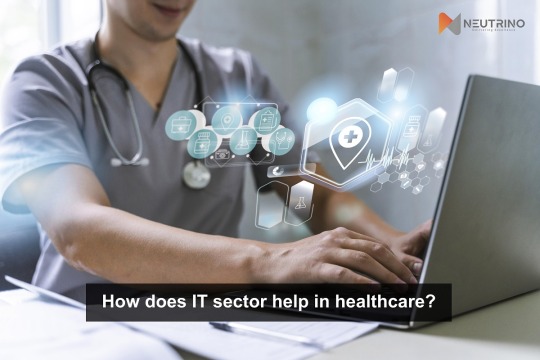Don't wanna be here? Send us removal request.
Text
What are the benefits of outsourcing data entry services for small businesses?

The benefits of help desk services, that you didn’t know earlier. It's time to choose online data entry services.
Cost Effective
Choose outsourcing data entry services for:
Payroll expenses
Advertising for open positions
Interviewing candidates
Vetting
Training
Buying new equipment
Increasing office space
Employee benefits
Health insurance
Profit-sharing
Time Savings
Overnight project turnaround
Access to Talented Resources
Trained, experienced operators from day 1
Highly educated, fluent English-speaking staff
Acclimatized to Western Cultural norms
Friendly demeanor and professional presence
Focus on Core Activities
Do what you do best- make your business grow
Boost morale - eliminate the tedious work
Increase profits by being more productive
Improved Work Efficiency
Less office space required
Less equipment needed
Fewer desks, chairs, and computers
Smaller payroll
Fewer benefits
Superior Data Management
Always the latest hardware
The latest in software
State-of-the-art security systems
Latest servers and networks
Flexible Business Model
Scale workforce as needed
Use computer time when needed
Never pay for too many team members
Potential for Expansion
Outsourcing can provide the resources you need when you need them
Peak Season- expansion, slow season- reduction
Over the past twenty years, outsourcing data entry services has become increasingly prevalent and valuable for businesses. Managing and processing large volumes of online data entry necessitate the involvement of skilled and experienced professionals. Given the time-intensive nature of this work, opting for outsourcing these services is a logical choice.
Neutrino Tech Systems stands out as the foremost provider of outsourcing services. Our team of highly competent professionals is genuinely exceptional. Allow us to demonstrate how collaborating with us can enhance your customer base and profitability. Reach out to Rely Services today for a complimentary and risk-free evaluation! About Neutrino Tech Systems: Neutrino stands as a prominent provider of IT services and solutions, empowering healthcare organizations worldwide to establish and uphold a unique value proposition towards their patients, and their medical records, managing data entry and automating the hierarchical process through the implementation of cutting-edge and inventive technological solutions. To know us more, you can click here.
0 notes
Text
How does IT sector help in healthcare?

How does IT sector help in healthcare?
Information technology has greatly influenced the development of various sectors such as manufacturing, education, health, and transportation. This term encompasses using digital technologies such as computers, telecommunications, and other digital tools to store, retrieve, and transmit information.
In healthcare, information technology plays a vital role. It refers to using modern and innovative systems and processes to manage health-related information. The accurate management of healthcare information is crucial for patients, healthcare providers, and insurance companies. While physical documents were traditionally used for this purpose, the integration of technology has become necessary to keep up with the pace and streamline healthcare services.
Here are the ways in which IT is a major player in the healthcare sector.
Electronic Health Records (EHR): IT has enabled the creation of EHRs, digital versions of patient medical records. EHRs can be accessed from anywhere and anytime, allowing healthcare professionals to share patient information and make more informed treatment decisions easily. This can lead to more accurate diagnoses, improved patient outcomes, and reduced costs.
Telehealth: IT has made telehealth possible, which allows patients to receive medical care remotely. This is particularly useful for patients who cannot travel to a healthcare facility or live in rural areas. Telehealth can also be used for remote monitoring of chronic conditions, reducing the need for in-person appointments and improving patient convenience.
Clinical Decision Support Systems: IT can be used to create clinical decision support systems that provide healthcare professionals with real-time recommendations based on patient data. This can help healthcare professionals make more informed treatment decisions and avoid medical errors.
Medical Imaging: IT has greatly improved the field of medical imaging, allowing healthcare professionals to diagnose and treat medical conditions more accurately. For example, radiology information systems (RIS) and picture archiving and communication systems (PACS) can store and share medical images, improving collaboration among healthcare professionals and reducing the need for physical film storage.
Supply Chain Management: IT industry can be used to optimize supply chain management in healthcare, allowing healthcare organizations to manage inventory, reduce waste, and improve cost-effectiveness efficiently. This can lead to improved patient care and reduced costs for both patients and healthcare organizations.
If there are more points in this, feel free to add.
0 notes
Text

Healthcare organizations have long been projected to be a lucrative market for the IT sector, with a forecasted value of USD 326.1 billion in 2021, even prior to the outbreak of the pandemic. This figure is set to grow even further and is expected to reach USD 662 billion by 2026.
However, due to the involvement of numerous stakeholders, such as hospitals, medical centers, doctors, pharmaceutical and research companies, as well as patients themselves, digitalizing the healthcare industry is considered one of the most intricate endeavors. Here, we’ll share the top best-used platforms that have the power to revolutionize healthcare organizations.
Top 5 platforms to be used in the healthcare sector in 2023 and beyond
1. Electronic health record (EHR): Electronic Health Records (EHR) are undoubtedly the most crucial and widely used type of healthcare software. These systems are designed to store a comprehensive range of patient data, including their medical and family history, lab results, prescription history, and more.
One of the most significant advantages of EHR systems is that authorized healthcare providers can create and manage a patient's health information, which can then be shared across multiple healthcare organizations. This not only saves time by eliminating the need for providers to gather redundant information from the same patient, but it also enhances patient care. EHRs help to minimize errors, enhance patient safety, and promote better patient outcomes.
2. Telemedicine software: The IT healthcare industry's fastest-growing sector is telemedicine, with the global telehealth market projected to reach a staggering value of USD $285.7 billion by 2027.
With the use of telemedicine software, patients and doctors can establish a reliable connection, seek healthcare organizations, schedule consultations, monitor treatment progress, and conduct check-ups online. This approach also saves patients considerable time and money by avoiding the need to travel to healthcare facilities. Therefore, healthcare firms are now actively pursuing telemedicine app development as a profitable growth strategy to leverage these benefits.
3. Hospital management software: Hospital management software is designed to optimize day-to-day operations in hospitals or clinics, from generating invoices to scheduling appointments. Through healthcare cloud computing, you can be integrated with electronic health record systems to track patient information, and insurance details, process payments, and perform other tasks. -
The primary objective of this software is to automate all administrative tasks effectively. Doing so, not only streamlines processes and improves operational efficiency, but it also enhances the patient experience throughout their medical journey.
4. Hospital management system (HMS): Hospital management software is a comprehensive system that offers information and management capabilities to three key stakeholder groups: hospital administrators, doctors, authorized healthcare professionals, and patients.
HMS typically includes two separate portals, one designed for management purposes and the other for patients. The management panel incorporates all the administration and health-related data required by healthcare organizations. This includes tasks such as managing food and medicine supplies, booking rooms, scheduling appointments, tracking doctor's timetables, and managing other operational aspects such as laundry, utilities, water, and power consumption, inventory management, and more.
5. Healthcare CRM Software: Healthcare customer relationship management (CRM) software is designed to help medical practitioners and clinics maintain a positive relationship with their patients. Although its purpose is similar to CRMs used in other industries, healthcare CRM software automates service sales, registration, and personalization based on provided patient data.
Healthcare CRMs are useful in providing comprehensive data on the clinic's daily operations. Through healthcare cloud computing, you can store patient data, including medical history, visit information, and bills. Additionally, these systems can send automated notifications to patients about upcoming appointments, prescription refills, and other important information. Ultimately, the goal of healthcare CRMs is to streamline administrative tasks within clinics and facilitate quicker data-driven decision-making.
When it comes to choosing healthcare cloud computing, it's important to select the right application that meets the unique requirements of your organization. Healthcare software can enhance the effectiveness of healthcare organizations and improve patient care. While there are many types of healthcare IT systems available, it's essential to focus your search by considering your organization's specific needs and the benefits you hope to achieve.
Keep in mind that the most popular software may not be the best fit for your organization. To ensure you make the right decision, it's recommended to ask software suppliers for demos so you can see firsthand what each system can do. Ultimately, it's important to choose a system that aligns with your organization's goals and workflows.
Wrapping up: If you're unsure where to start, our team of healthcare software development experts is available to assist you in narrowing down your search or building a customized software product that meets your needs. We're just a click away from helping you deliver the best healthcare services for your project or organization.
About Neutrino Tech Systems: Neutrino stands as a prominent provider of IT services and solutions, empowering healthcare organizations worldwide to establish and uphold a unique value proposition towards their patients, and their medical records, managing data entry and automating the hierarchical process through the implementation of cutting-edge and inventive technological solutions. To know us more, you can click here.
1 note
·
View note